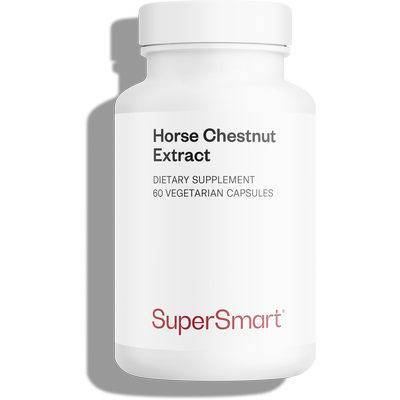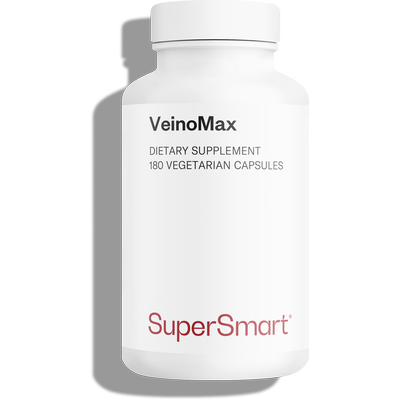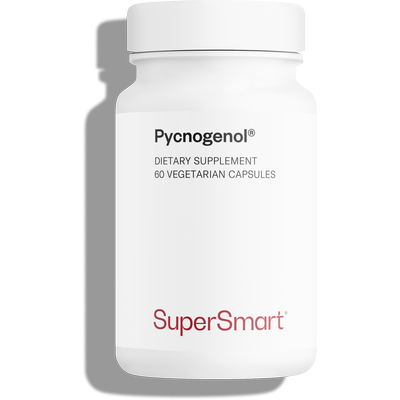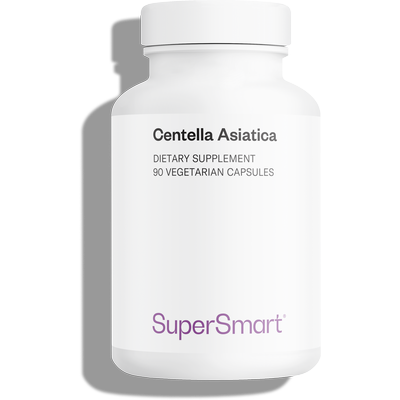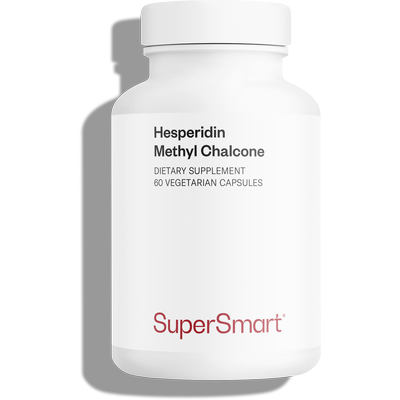31-07-2019
Natural remedies for relieving heavy leg syndrome
 Although summertime may be conducive to rest and relaxation, the hot weather can significantly exacerbate the sensation of heavy legs. When temperatures start to rise, it’s not uncommon to experience swollen ankles and a feeling of heaviness in the lower limbs. This unpleasant sensation tends to be worse at the end of the day, causing muscle tension, pain, cramp and numbness. The good news is that natural remedies are available to combat these often-seasonal symptoms, with several plants having demonstrated efficacy against heavy leg syndrome. Read on to discover more about their benefits and enjoy a relaxing summer, free from discomfort!
Although summertime may be conducive to rest and relaxation, the hot weather can significantly exacerbate the sensation of heavy legs. When temperatures start to rise, it’s not uncommon to experience swollen ankles and a feeling of heaviness in the lower limbs. This unpleasant sensation tends to be worse at the end of the day, causing muscle tension, pain, cramp and numbness. The good news is that natural remedies are available to combat these often-seasonal symptoms, with several plants having demonstrated efficacy against heavy leg syndrome. Read on to discover more about their benefits and enjoy a relaxing summer, free from discomfort!
Heavy leg syndrome is often a sign of venous insufficiency
Heaviness in the legs, a circulation problem
Swollen ankles, heavy legs, pins and needles in the calves, night cramps … all these symptoms are characteristic of venous insufficiency. This is caused by poor circulation, more specifically by poor venous return, when the veins have trouble sending blood back from the legs to the heart. The effect of gravity means that blood ‘pools’ in the lower limbs, leading to swelling, heaviness and aching in the legs. Venous insufficiency can lead to the development of varicose veins, skin problems or more serious issues such as oedema of the lower limbs.
Venous insufficiency, a common circulation problem
One of the most common conditions in developed countries, venous insufficiency is more likely to develop in the presence of risk factors such as excess weight, a sedentary lifestyle, smoking and hot weather. In France, almost 20 million people are thought to suffer from chronic venous insufficiency. In an effort to find ways of relieving the symptoms of this circulation problem and preventing further complications, a number of avenues have been explored. These include phytotherapy which has shown considerable potential.
Potential of phytotherapy to combat venous insufficiency
Efficacy of natural veinotonics to counter venous insufficiency
While first-line treatment for venous insufficiency often focuses on compression stockings and certain drugs, plant-based alternatives are available. These are often termed veinotonics or phlebotonics because of their circulation-stimulating effects. In 2016, the Cochrane Database of Systematic Reviews1 published a review of the efficacy and safety of a number of veinotonics for treating venous insufficiency. Researchers had analysed the results of numerous studies conducted over recent years, and had retained data relating to eight active compounds, several of which were derived from natural extracts. In view of the large amount scientific evidence available, they selected, in particular:
- - the plant Centella asiatica, also known as gotu kola, therapeutic use of which dates back thousands of years;
- - French maritime pine bark extract, known for its antioxidant activity and beneficial effects for venous insufficiency;
- - grape seed extract, studied for its many therapeutic virtues, particularly that of relieving heavy legs.
- - extract of Citrus aurantium, from which diosmin and hesperidin are extracted, two active principles known to boost venous tone and elasticity.
The scope of the work carried out by these researchers was extensive. They looked at data gathered from more than 6000 subjects, enabling them to complete a full and reliable overview of veinotonic treatments. Their analysis showed that these treatments offer a number of beneficial effects against venous insufficiency:
- - decreased lower limb oedema, reducing the risk of venous insufficiency complications;
- - fewer symptoms of venous insufficiency such as heavy legs, cramps and swelling;
- - benefits for trophic disorders which are complications caused by poor tissue nutrition, primarily manifesting in skin changes.
Growing interest in horse chestnut extract
In addition to the above-mentioned compounds, another extract has been widely studied in recent years: extract of horse chestnut. Often presented as a traditional remedy for treating the symptoms of venous insufficiency, horse chestnut has been found in scientific studies to contain a powerful active principle called escin. Supplements are actually now available based on extract of horse chestnut standardised in escin. An earlier review, published in 2012, also in the Cochrane Database of Systematic Reviews2, reviewed the benefits of this extract. In this case, analysis of data collected from a number of studies into the effects of supplementation with horse chestnut extract revealed excellent results.
Recognised benefits against chronic venous insufficiency
Researchers compared the effects of supplementing with horse chestnut extracts against placebo. Analysing six different studies, they highlighted several benefits from taking horse chestnut extract. Compared with subjects receiving a placebo, supplemented individuals experienced a significant reduction in pain and leg volume. In providing relief from these symptoms, this natural extract thus appears to provide valuable support in cases of venous insufficiency.
These two scientific reviews confirm the benefits of phytotherapy for combatting the symptoms of venous insufficiency including heavy leg syndrome. Centella asiatica, extracts of French maritime pine bark, grape seed and horse chestnut … the list of plants with veinotonic effects is long. While these natural extracts can be taken as individual nutritional supplements, combining them may provide additional benefits for fighting venous insufficiency. One such formulation is VeinoMax which combines close to ten natural extracts including those mentioned in this article.
> Sources :
1. Martinez-Zapata MJ et al., Phlebotonics for venous insufficiency, Cochrane Database Syst Rev., 6 Avril 2016.
2. Pittler MH et al., Horse chestnut seed extract for chronic venous insufficiency, Cochrane Database Syst Rev., 14 Novembre 2012.
Order the nutrients mentioned in this article
Further reading
24-08-2016
Almost 600 studies - the majority conducted in Russia - have been published on the effects of taxifolin, a powerful flavonoid extracted from Siberian larch....
Read more10-04-2017
Standardised sweet clover extract is effective at relieving symptoms associated with lymphoedema and chronic venous insufficiency. Its main component, coumarin - a benzopyrone - is...
Read more19-05-2015
30% of the population suffer from venous insufficiency – four times as many women as men. To prevent this chronic, progressive disease from getting worse,...
Read more© 1997-2025 Fondation pour le Libre Choix
All rights reserved
All rights reserved
Free
Thank you for visiting our site. Before you go
REGISTER WITHClub SuperSmart
And take advantage
of exclusive benefits:
of exclusive benefits:
- Free: our weekly science-based newsletter "Nutranews"
- Special offers for club members only



